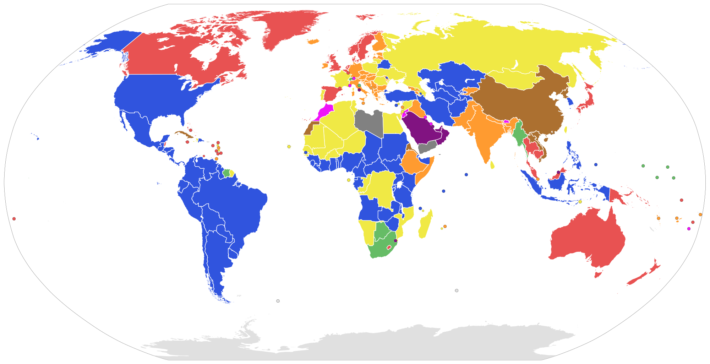A study over compatibility between political systems and political regimes
We will discuss the relations between political systems and regimes with totalitarianism. First, we begin with the systems and regimes and review what is their feature, advantages, and disadvantages. after that, we look at the relations between the presidential system, semi-presidential system, and parliamentary system with totalitarianism. Finally, we will talk about their compatibility and give a general view.
First, we start with the main features of the systems. In the presidential system, the legislative and executive powers are given to two bodies that are absolutely separated from each other. The legislative and executive bodies are elected independently of each other and cannot terminate each other ‘s duties. The executive branch is single-person, and the president is elected by the people. The presidential system depends on the separation of powers and of the checks and balances functioning in the system of democracy. The presidential system creates a stable and strong administration, which is usually because the president is a single person, no coalition or no vote of no confidence. The presidential system creates a more democratic environment than the parliamentary system the main reasons for this are the president being directly elected by the people and the principle of accountability. On the other hand, there are some weaknesses of the presidential systems first it creates a regime crisis because of the absence of the termination and the no vote of no confidence. the fact that both the legislative and executive bodies have been elected may lead them to claim legitimacy separately.
The parliamentary system is a system in which the legislative and executive branches are softly separated from each other. In this system, the executive branch is divided into two, and the legislative and executive organs can terminate each other’s legality. There is a cooperation between the legislative and executive bodies in the parliamentary system of government. In the event of a crisis between the legislative and executive organs in the parliamentary system, it is likely that this crisis will be resolved by a vote of no confidence and termination. There is no polarization in the parliamentary system, and in parliamentary systems, the head of the State has a moderating and conciliatory effect besides The parliamentary system leads to weak and unstable governments.
In the semi-presidential system, we can say that it is like parliamentary systems but the difference is that president elected by the people.
Now we will discuss the relations between the systems and totalitarianism. In totalitarianism, there is centralized management. Totalitarianism is a state of a strict rule in which power is gathered in one hand. In history, we saw some examples of totalitarian regimes like Hitler’s Germany and Mussolini’s Italy. What are their features ? in Their country there are some restrictions over their organs like media, and also individuals are not free. As for the relation of the emergence of totalitarian regimes with the systems, some systems, for example, the presidential system, seem to have a situation that is essentially compatible with the fact that one person is the head of the executive branch. on the other hand, in the parliamentary system, the presence of the same people in both legislative and executive organs is an important factor.
what may be a problem in the alignment of the presidential system with totalitarianism is that there is a problem of double legitimacy. the fact that both executive and legislative bodies are popularly elected can lead to a totalitarian regime becoming unilaterally
If we look at the parliamentary system or the presidential system and the characteristics of totalitarian regimes that have come before in history, the presidential system, it seems more appropriate than the parliamentary system for totalitarianism. because of the presidential system effective to ensure the emergence of a stable and strong administration. Again, after Hitler’s election as chancellor by Paul von Hindenburg, Hitler’s uniting of the presidency and the chancellorship was due to the fact that he wanted to achieve this stability and power.
In the parliamentary system, the fact that the legislative and executive organs are more relevant to each other and that they can legally terminate each other’s duties is not a good condition for the emergence of totalitarian regimes because the person who will be the leader in the totalitarian regime has to take into account a certain group, the legislature or the other head in the executive.
However, the political structure of that period, the social-cultural situation of the state, the relations with other states and their economic situation are also important in the emergence of totalitarian regimes when we talk about the aspects of the presidential system and the parliamentary system that are compatible or incompatible with totalitarianism.
As a result, we looked at the totalitarian regime more compatible with the presidential system than the parliamentary system, at which points it was compatible or at which points it was incompatible. accordingly, the presidential system provides a stable and strong governing environment for the emergence of totalitarian regimes, it is appropriate that it is a rigid system and that it is suitable for the personalization of power in one direction. besides these, we said that the other factors of the state were effective in the emergence of regimes.

